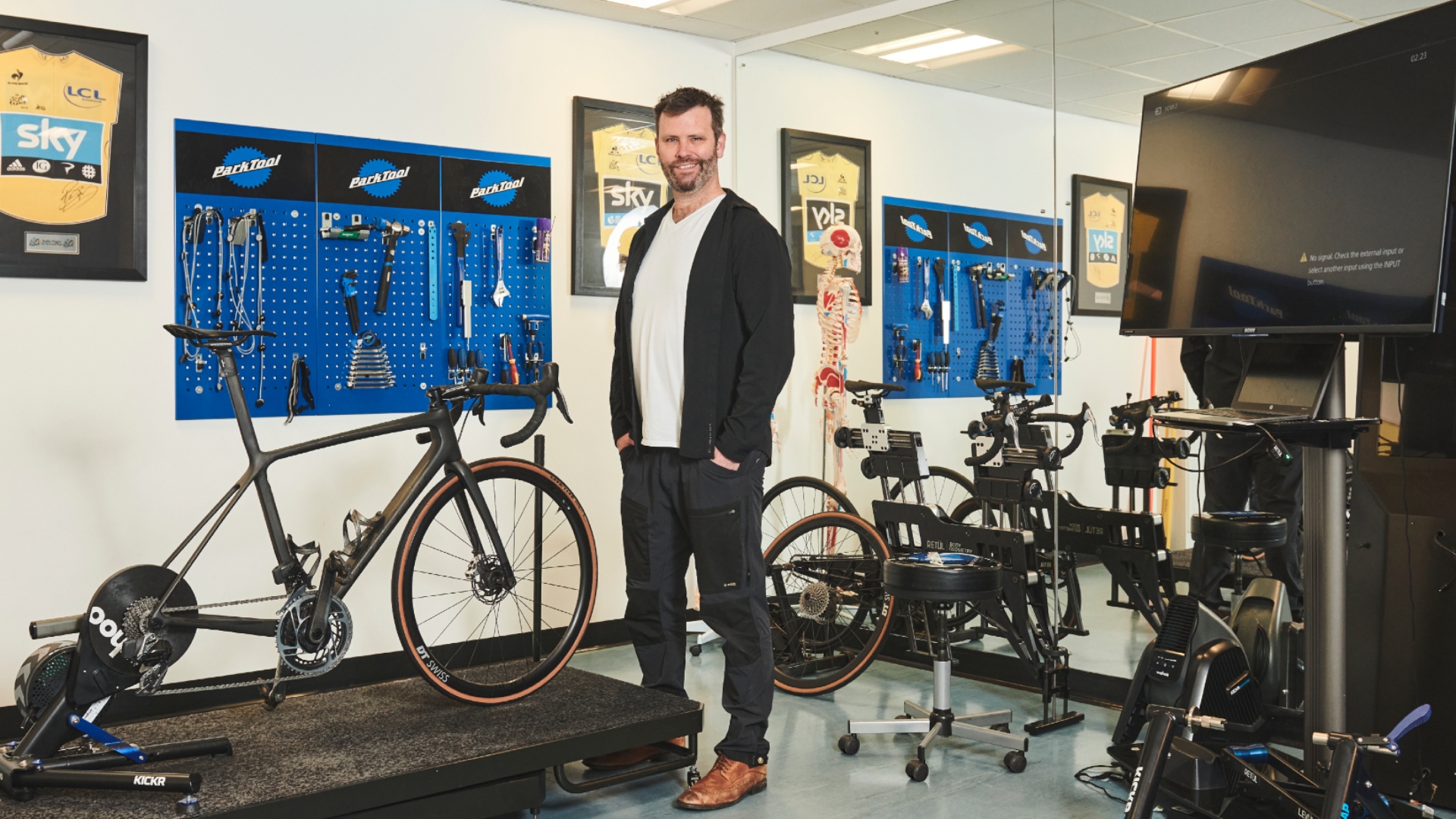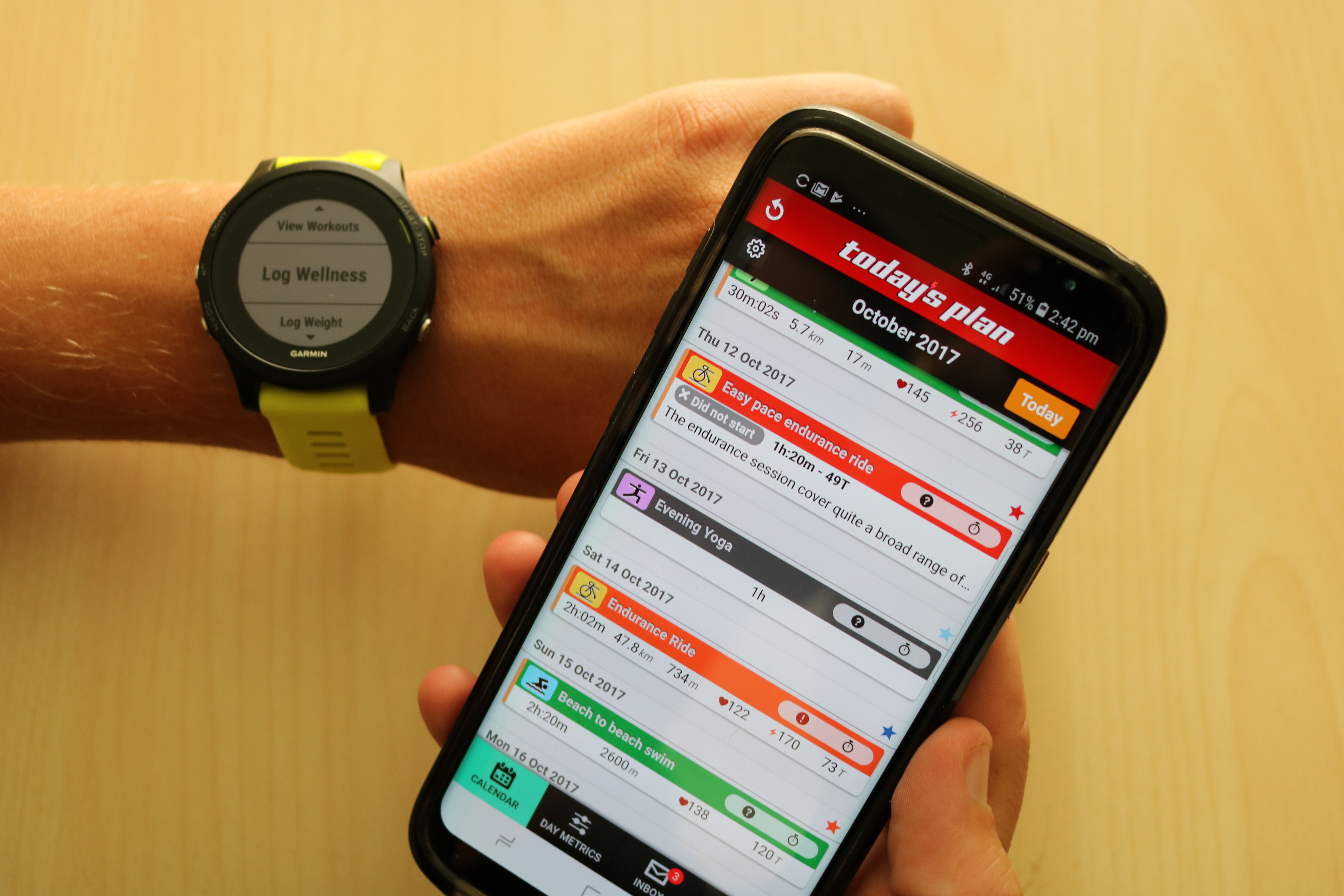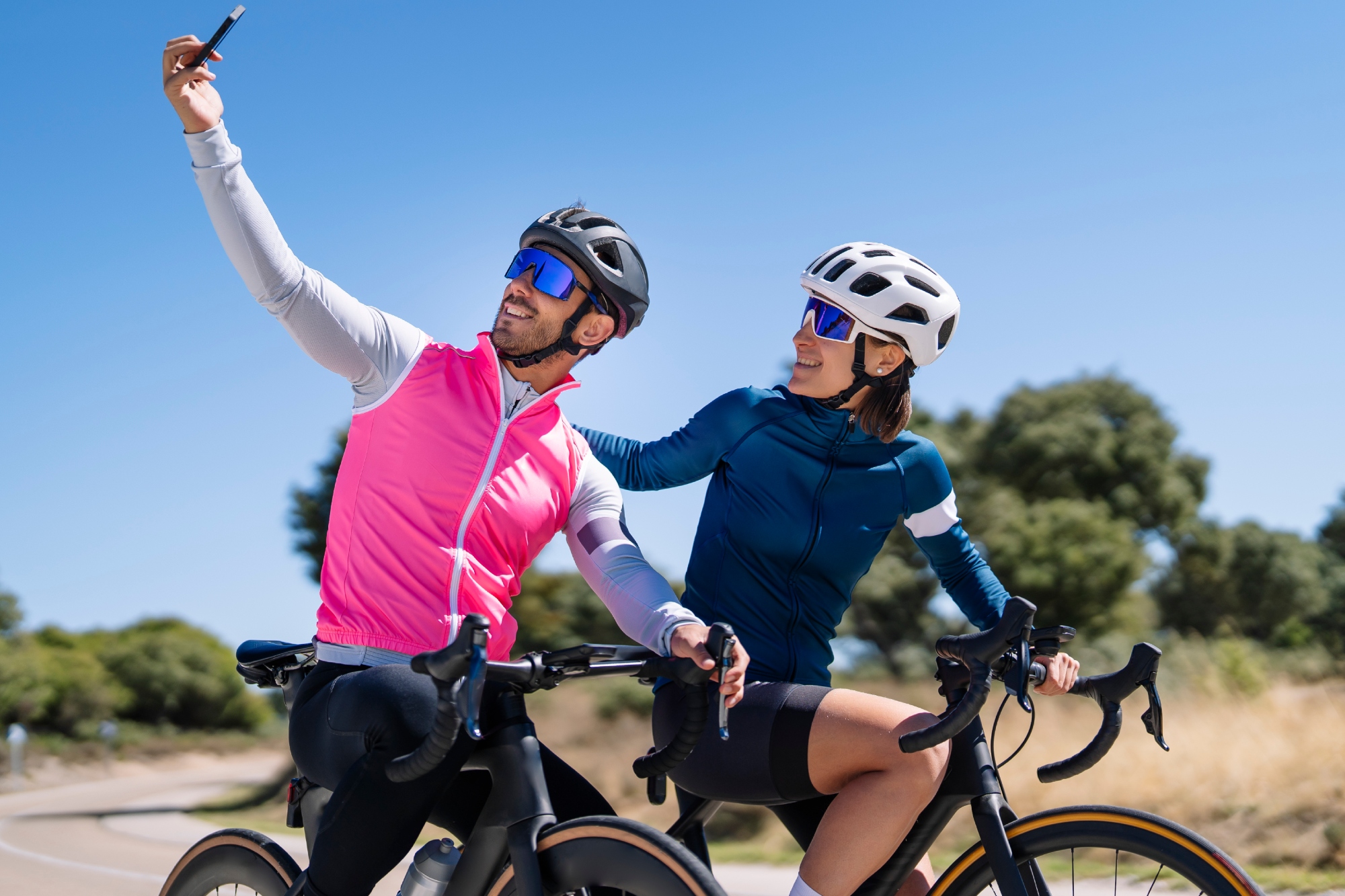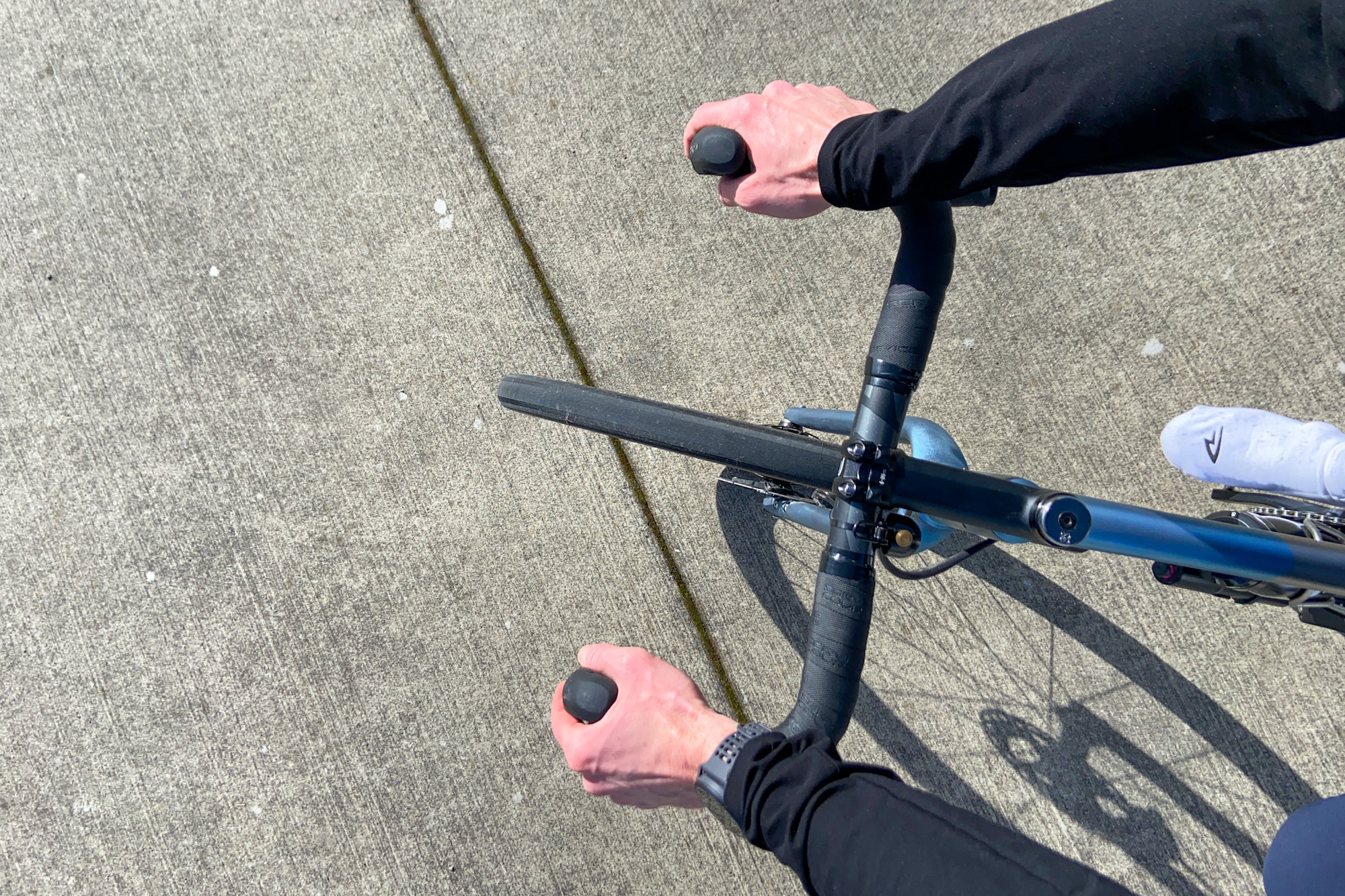
Most of us have busy lives, packing in cycling alongside work, family commitments and more - making 'quick wins' extremely inviting. But, do they work? In our weekly series we speak to cyclists of all kinds, to find out what one change they've made that's helped to make them a better bike rider - and ask - will it work for you?
Phil Burt describes himself as a cycling health and performance innovator. By profession he is a physiotherapist and bike fitter, and was the leading physiotherapist at British Cycling for 12 years, over three Olympic cycles, as well as a Consultant Physiotherapist at Team Sky for half a decade.
Having overseen the world's best riders performance at three Olympic games and seven Tours de France, along with numerous world class performances, Burt now runs his own clinic. Specialising in bike fit, injury assessment and treatment, aero assessment and saddle health.
As someone who regularly meets cycling returners, Burt says that many of his clients initially decided to get back on the bike because they've recognised the support riding can provide, not only their physical fitness, but their mental health too.
"My top tip is if you’re trying to reboot your love of cycling, just go and ride", whilst 'setting a goal' is often advertised as a motivating kickstarter, he notes "there’s a lot to be said for sometimes just riding with no particular goal, and recording nothing."

Just one small change: ditch the data
Burt believes that, while technological advancements in the ability to track and measure fitness data can be inciteful, "cycling has becomes a bit of a victim of a sport where you are able to measure nearly everything.
"Whilst this can be exciting and incredibly informative" says Burt, "it can also lead to a kind of data burnout. This is especially true in the modern world of social media and fear of missing out.
"I’d argue against the premise of if 'it hasn’t been recorded, it didn’t happen'" confirms Burt, adding that "setting out to go between A to B with no goal, time, power zone to hit, in my opinion, is an incredibly relaxing mental exercise.
"You can absorb the world around you and let your mind wander. You might surprised how quickly that in itself becomes addictive."
There's no arguing with the positive mental health attributes that going for a bike ride can bring, but does always digitally recording some element of your activity devalue a bike ride?
Expert's view

To get a better understanding as to whether or not constantly tracking, monitoring and sharing our fitness data can really have a negative impact on our mental health I spoke to Dr Rachael Kent. As a world-leading researcher, author, consultant, podcast host and Lecturer in Digital Economy and Society, in the Department of Digital Humanities at King’s College London, her research examines the impact of digital technology on mental and physical health.
"As humans, we’re socially driven to be productive" says Kent, explaining why most of us have an urge to start tracking our fitness data in the first place "health is seen as part of an extension of our identification. So being able to capture and measure this productivity probably feels quite natural and a way of monitoring progress.
"There’s been a huge rise in ‘wellness culture’ over the past few years, leading to an explosion in the demand to evidence of our 'heath'" Kent adds, explaining that "It’s given a lot of people the authorisation and motivation to self track and monitor their own fitness journeys."
While sharing and tracking your ride doesn't seem much of an issue, Kent’s research is showing that it’s when people aren't able do this, the problems start to surface. "If people don't capture evidence of their activities, they become guilt ridden" she says.
The issue, according to Kent, is that the cycling apps we’re using to evidence this progress are designed to place increasing demands on us to feed them our data, which then forms the unhealthy habit.
Kent adds that part of this is down to a generic move away from traditional individual sports, that have been around for generations, to 'social fitness’, the tracking of every movement and meals, which has now become an autonomous sport itself by which we can measure targets against.
"Using digital health tools to identify with and capture evidence, allows the monitoring, accountancy, benchmarking and sharing of data in order to feel validated within a community," she says.
Kent’s work has shown that it’s this capturing and sharing of ride, gym or other data that individuals are using to authenticate who they are.
"There was a huge increase in Covid and lockdown to self track and share this information on social media" says Kent "it was a way of evidencing our daily productivity, quantifying our use of time, especially when time outside and ability to meet others was so limited."

Now that we're well on the other side of this, arguably, oversharing of our personal activities, the desire to still track and share our movement, diets and daily activities is now habitual.
"The problem is that the health trackers employ knowledge of behavioural economics to nudge the user into activity, so we no longer use or trust our own intuition when it comes to our own health.
"The apps and tech products are specifically designed to ensure we use them everyday in order to capture our data" she says, before adding that "big tech companies design in this sense of ‘agency’, that logging the ‘health’ information is of vital importance to the individual."
Whilst tracking every movement may give us a sense of control, Kent argues that we can become enslaved to the process.
In her book, titled ‘ The digital health self’, Kent explains that this behaviour can soon form an addiction. Giving shocking examples from her research, she reveals "[one] individual noticed - after analysing her social media metrics - that when she shared images of meals which included peas, noticed that she had higher social interaction. This led to her making a dietary change to include peas with all meals."

Kent advises that anything you can do to disrupt your ingrained behaviour and unlearn habits is the best way to break free of the urge to constantly track fitness data.
- Redirect physical attention; switch off notifications, nudges and invitations
-Create a physical boundary; e.g. remove your device from arms reach, by placing it in another room or not taking it with you is a great habit disrupter.
- Set in place rules for when you do look at your device, eg only look at your phone when you have three tasks to complete.
- And if you 'slip up'? Don’t give yourself a hard time when you don’t stick to your breakup strategy, just return to the plan.
According to Kent this isn’t an extreme case either.
Peeling back the layers on the human psychology on sharing fitness data further still, Kent adds that "subconsciously individuals use this as an existential showcase of an identity and cultural preference, which we tie to our self worth.
"Pre social media we would have shown these preferences with our clothing, or even hairstyles choices" explains Kent "but, the technology is taking over these non-verbal cues, and we find ourselves at the mercy of algorithms, and filter bubbles, meaning that we’re surrounded by similarly minded users."
The eco chamber this produces, she says, skews our sense of normal behaviour. "Research is showing individuals that always track and share health data are adjusting themselves to their audiences, which in terms of social media platforms is aiming to meet an aesthetically focused algorithm," notes Kent.
It’s a stark warning that always tracking and sharing our rides to demonstrate how fit we are or how much we’re achieving is far from healthy.
Our View
Speaking to Kent has been both alarming and life affirming. While we're all aware of the perils of social media on our mental health, and how endlessly 'doom scrolling' can quickly become an addictive habit, I hadn't realised just how much fitness tracking and data sharing can also impact negatively on our mental health too.
We've already spoken a lot here at Cycling Weekly about app and exercise addiction, but with the cycling industry's love of data backed evidence, it's easy to fall in to the trap of constant bench marking and measuring.
While this can be important for cyclists who are performance focused, it's important to remember that your mental health is just as vital and your physical health, and to notice the warning signs when the tracking and sharing becoming your identity.
When surrounded by an industry which places a lot of value on number driven performance, Kent's research provides a lot of validation on my own relationship of being number curious, not driven.
If all this isn't enough to evidence for leaving your device at home and just going for a ride, learning that constantly tracking data can erode the very essence of a joyful lived experience of riding bikes, which is probably why we all started in the first place.
As Kent so eloquently puts it: "if we always place an emphasis on data, the personal experience of going for a ride, having a nice meal, is totally lost."







